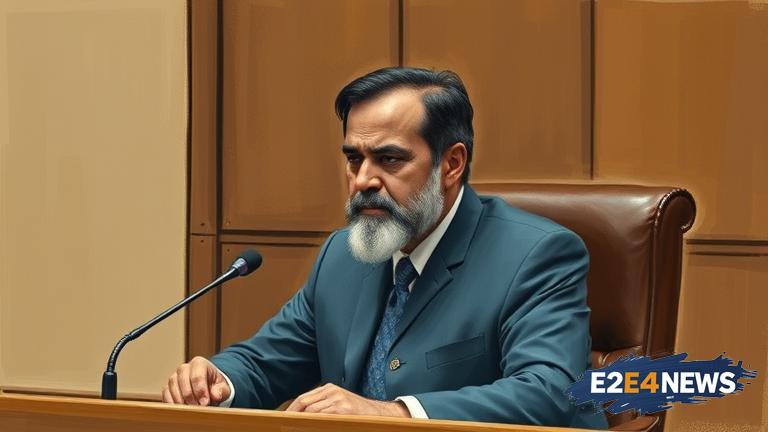In a significant development, Justice MM Sundresh has recused himself from hearing the bail plea of noted activist Surendra Gadling in the 2016 Gadchiroli arson case. The case, which has been ongoing for several years, has garnered significant attention due to the involvement of several high-profile activists. Surendra Gadling, a prominent lawyer and activist, was arrested in 2018 in connection with the case, which alleges that he was involved in an arson attack on a police vehicle in Gadchiroli, Maharashtra. The attack, which occurred in 2016, resulted in the death of one person and injuries to several others. Gadling’s arrest was widely condemned by human rights groups and activists, who alleged that he was being targeted for his work in defending marginalized communities. The bail plea, which was filed by Gadling’s lawyers, argued that the activist was innocent and that the charges against him were fabricated. However, the prosecution argued that Gadling was a key conspirator in the attack and that his release on bail would pose a threat to public safety. Justice MM Sundresh, who was hearing the case, recused himself citing personal reasons. The recusal has been seen as a significant setback for Gadling, who has been languishing in jail for several years. The case has also raised questions about the independence of the judiciary and the use of draconian laws to silence dissenting voices. The Gadchiroli arson case is just one of several high-profile cases in India in which activists and intellectuals have been targeted for their work. The case has also highlighted the plight of marginalized communities in India, who often face violence and persecution at the hands of the state. The use of draconian laws, such as the Unlawful Activities (Prevention) Act, has been widely criticized by human rights groups, who argue that they are being used to silence dissenting voices. The Indian government has been accused of using these laws to target activists and intellectuals who are critical of its policies. The case has also raised questions about the role of the judiciary in protecting the rights of marginalized communities. The recusal of Justice MM Sundresh has been seen as a significant blow to the hopes of Gadling and his supporters, who were hoping for a favorable verdict. The case will now be heard by a new judge, who will have to consider the bail plea afresh. The outcome of the case is still uncertain, but one thing is clear – the Gadchiroli arson case has highlighted the need for greater protections for human rights and the rule of law in India. The case has also underscored the importance of an independent judiciary in protecting the rights of marginalized communities. As the case continues to unfold, it is likely to have significant implications for the human rights landscape in India. The use of draconian laws to silence dissenting voices is a worrying trend that needs to be addressed. The international community has been watching the case closely, and the outcome is likely to have significant implications for India’s human rights record. The case has also highlighted the need for greater transparency and accountability in the Indian judiciary. The recusal of Justice MM Sundresh has raised questions about the independence of the judiciary and the need for greater protections for judges who are hearing sensitive cases. The case is a reminder that the rule of law is essential for protecting human rights and promoting social justice. The Gadchiroli arson case is a complex and sensitive case that requires careful consideration and a commitment to upholding the principles of justice and human rights.
